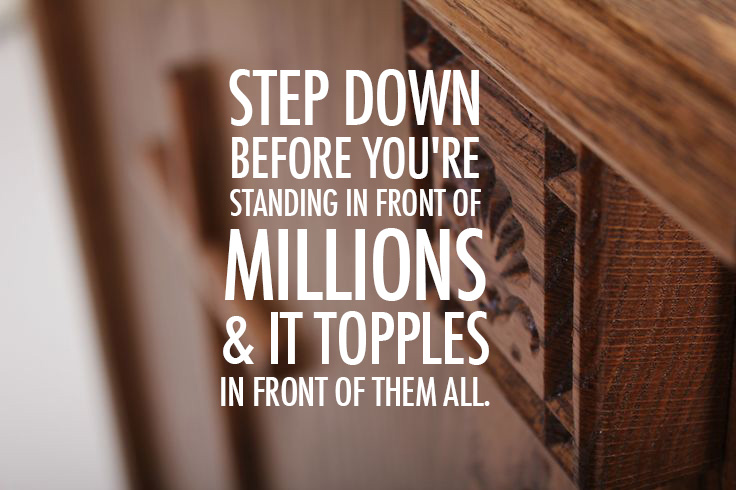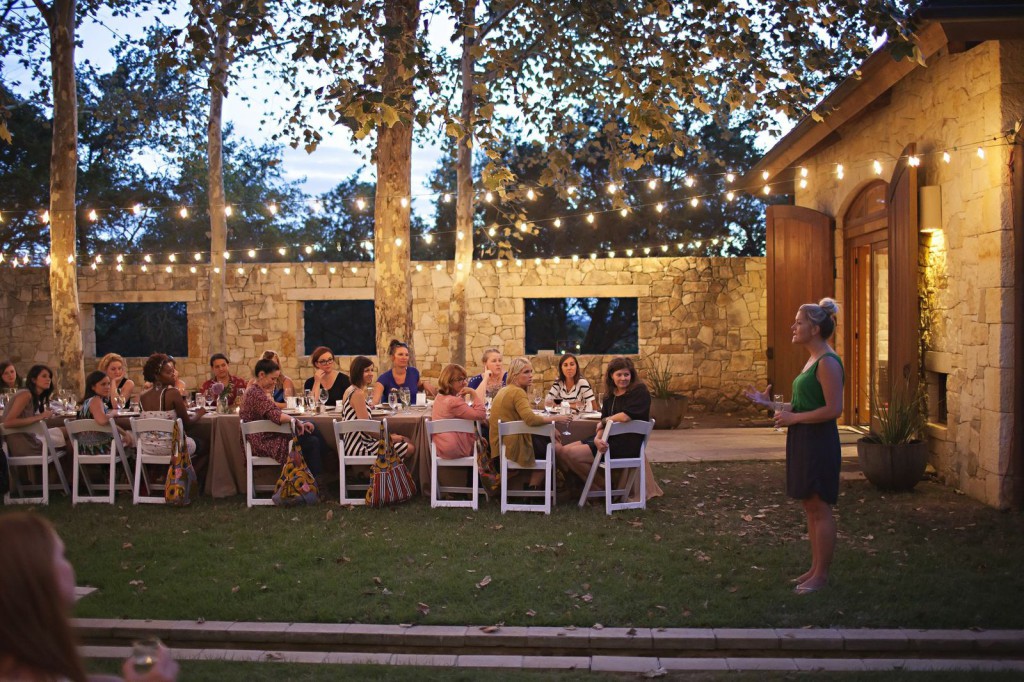If you came here looking for gossip, this is not where you'll find it. I alluded to a few things in my recent post on Same Sex Attraction and Delaying Marriage, so consider these thoughts just a continuation of that post.
First, I want to say that I bear no ill will toward my parents in any way. Hebrews 12:10 says, "Your fathers disciplined you as it seemed best," and whatever that verse means for you, for me it means I can trust my parents did what they thought best. They did not intend harm toward me or my siblings in the schooling or spiritual choices they made for our family. That does not mean we were not harmed, only that I know they were doing what they thought best.
Second, I want to say that God is not a wasteful God. He does not pile up the scraps of our lives and bemoan the loss. He is a careful artist and potter, shaping and shifting, knitting and building, crafting those made in His image to be more and more like Him. He is careful and attentive. He does not waste experiences or difficulties or joys or pains. Every single moment of my life has been held in His capable hands. I see that more today than I ever have before and I trust Him.
Now, let's talk about homeschooling and sex scandals
If you were a part of the homeschooling revolution of the 80s and 90s, then you were most likely a child of someone who came of age in the 60s and 70s. These were the hypnotic, drug hazed years of rock n roll, hippies, bra-burning, Woodstock, and the Jesus Movement. These were people who knew how to sin big—and who came to Jesus big. For most of our parents, even if they were not part of those movements, they were influenced by them—for better or worse.
As any parent, and especially ones new to faith, would do, they protected their young often to the point of over-protecting. They banned rock music, R rated movies (or PG13 if you were my parents); they monitored clothing choices not only for modesty, but also for looking too much like the world; they monitored friendships—especially friendships between boys and girls (more on that in the aforementioned post).
Folks, I have stories I find laughable now, but then? In the moment? Rage inducing stories. It was tough to be a child in that atmosphere. We were ruled by the fear of what might become of us. There was little grace in our communities—in fact, it wasn't until I was in my late 20s that the word grace ever entered my vocabulary as something other than a girl's name.
These parents intended to protect, and they did, but drawing boundary lines close around your daughter still does not protect her from herself. Naming things as off limits to your son does not keep him from delving into the darkness in his own heart.
You can monitor modesty and measure hemlines, but you cannot moderate the temperature of your child's heart. You can eliminate songs with beats, but you cannot temper the beating of your child's heart for artistry. You can talk about not defrauding the hearts of boys or girls, but you cannot control the trigger in their hearts that jumps when they feel chemistry.
The problem is, for many and most of these homeschooling parents, they tried to do just that.
Full disclosure for a moment here
I was not simply a homeschooled kid. My family brushed shoulders with some of the upper echelon of the homeschool movement of the 90s. My parents produced an award winning book for homeschoolers and I spent most of my youth surrounded by the most deeply entrenched in the movement. We were taking over the world, one homeschool convention at a time.
Within these homeschool circles, because there was much protection, there was much trust with likeminded individuals (I remember being disciplined and rebuked often by other parents in my family's circle), and kids were free to roam among their likeminded peers. There was a common habit of putting the older children in charge of the younger children—but all of us still just children. And all of us bit with the curiosity that forbidden fruit offers. I had my first encounter with sexuality when I was 10 years old. I cannot even remember all the times my peers were either accused of sexual curiosity, abuse, or simply "going too far." It was epidemic—and still never talked about.
Natural curiosity lies abed in everyone. We all want to know about things. All sorts of things. How they work, if they work, who knows how to make them work, and if they'll work for us. For many of these homeschoolers though, the questions about sex and relationships were squelched—even the good ones.
You can protect your kids from almost anything, but if you don't teach them that their greatest threat is self and the sinfulness that lies inside them, they'll be surprised by it every time.
Curiosity kills the cat—and sometimes the mouse too.
In the past few years more and more allegations of sexual abuse or assault within conservative movements has come to light (SGM, ATI, BJU, and far more).
Friends, we should not be surprised.
I believe that much of the sexual abuse and scandal that's coming to light these days is directly related to the sin of legalism. It was Eve telling the serpent, "God said we could not eat or touch." There was so much fear surrounding the other things in life (music, clothing, doctrine, even food), that to broach the subject of sex just seemed almost other-worldly.
We added to the gospel, to the truest things God ever said. We got knowledge of good and evil, but for many in the homeschooling movement, we prided ourselves on keeping the knowledge inside and the evil locked safely out. We never let ourselves realize the heart contains all the knowledge and evil it needs to have things go very, very badly indeed.

Note: These are just my thoughts and commentary on a bit of my own experience. I believe most parents who spearheaded these movements realize their error at this point—and most of us, the product of these movements, certainly realize it.
The solution is the whole gospel—and to flee whenever you catch even a drift of another gospel. There are "other" gospels everywhere—pet theologies, dogmatic arguments, dramatic treatises on any subject offering the real truth and real life, but Christ alone is it. Christ alone.
If you find yourself heading into a belief system that places more emphasis on any outworking of the gospel, than it does on the life, death, and resurrection of Christ, flee.
 If the life of a single, as Paul admonished, is to be undistracted by the world, concerned with the things of the Lord, then unmarried ministers have a unique calling indeed. And it is one the church ought not ignore—or usurp.
If the life of a single, as Paul admonished, is to be undistracted by the world, concerned with the things of the Lord, then unmarried ministers have a unique calling indeed. And it is one the church ought not ignore—or usurp.











